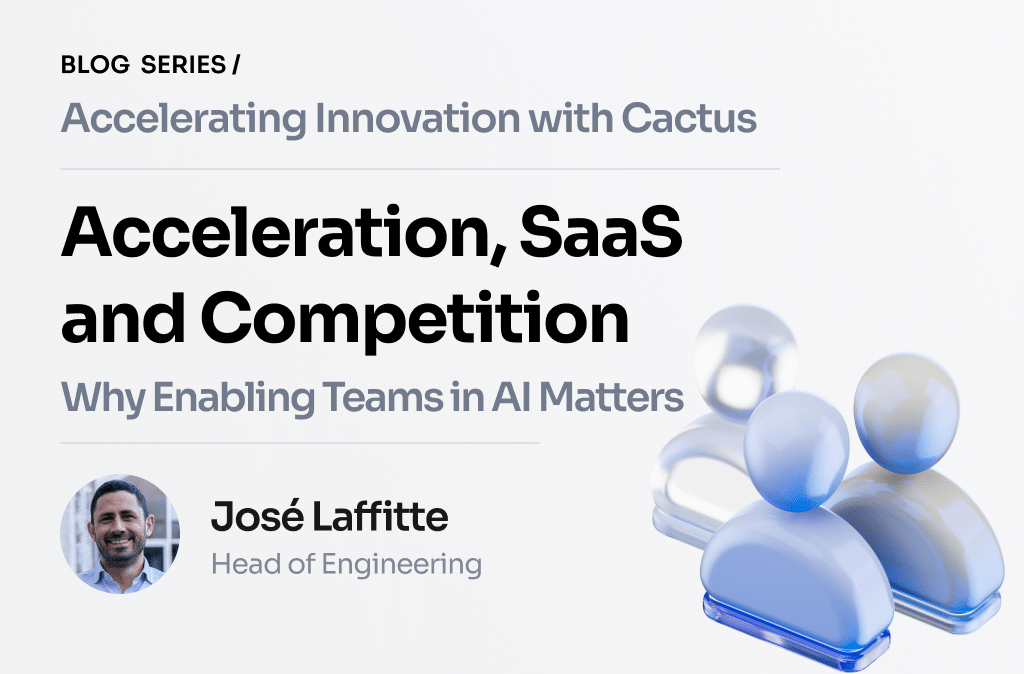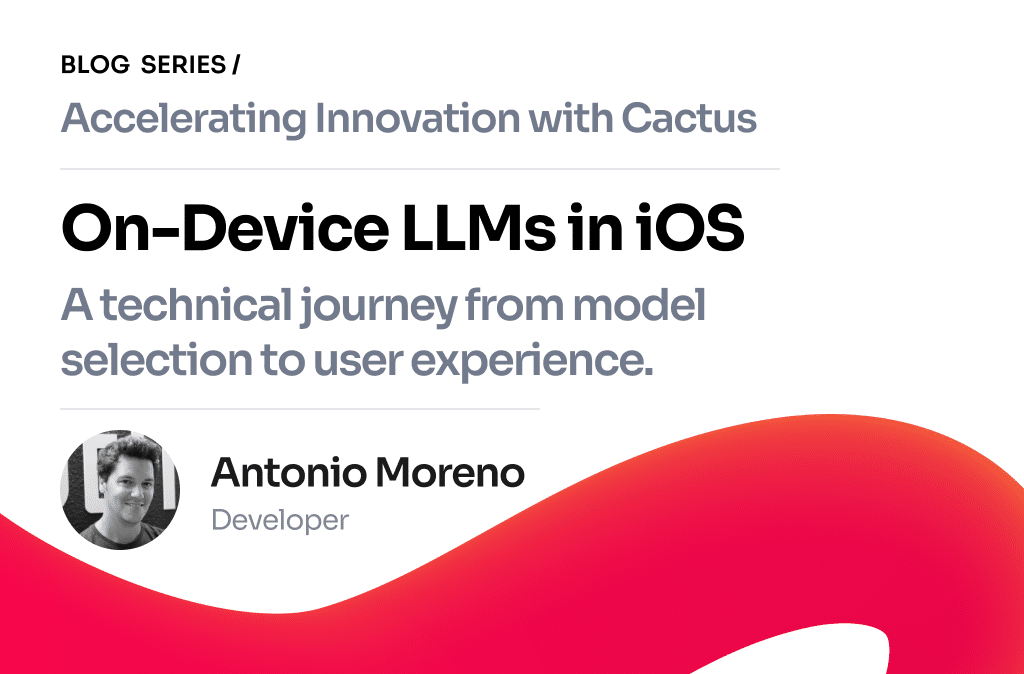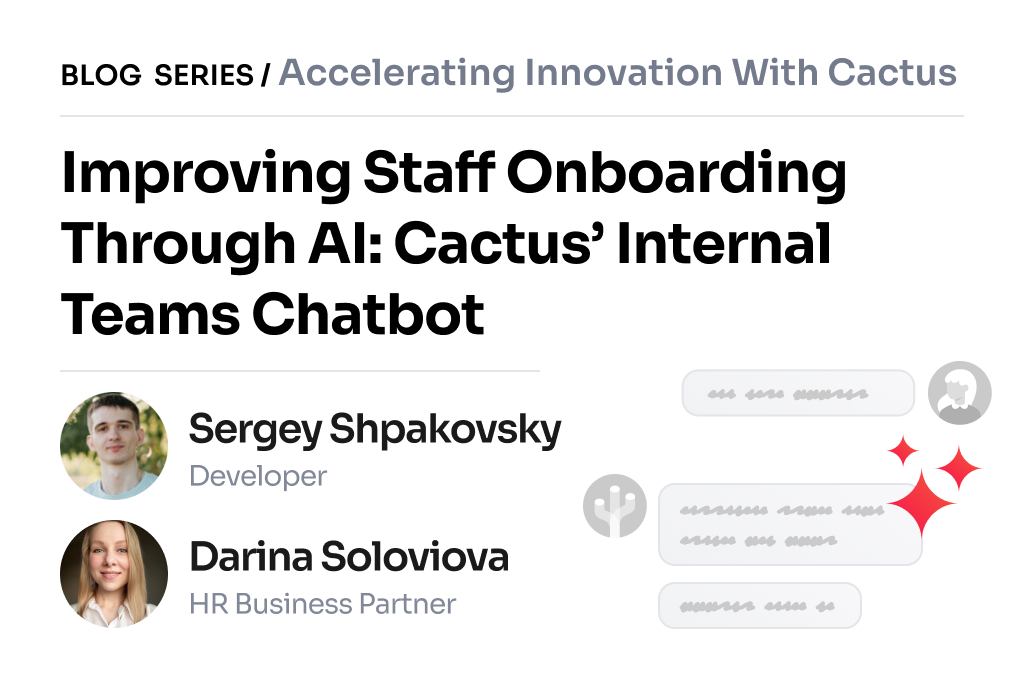In a world where technological disruption is evolving faster than ever, Belgian companies face a crucial choice: participate or fall behind. From AI and quantum computing to space innovations – the speed and impact of these developments are unprecedented. José Laffitte, Head of Engineering at Cactus, shares how Belgian companies can navigate through this storm of change. How do they stay relevant, seize opportunities in AI and quantum computing, and leverage disruptive technologies to gain a competitive advantage?
From AI-driven software development to quantum computing and groundbreaking space initiatives – technology is changing faster than ever before and is turning entire industries upside down. Belgian companies must choose: do they join this race, or risk falling behind?
To understand how companies can strategically respond to this disruptive wave, we spoke with José Laffitte, Head of Engineering at Cactus. With his international expertise in AI and satellite communications, he helps companies effectively deploy groundbreaking technologies, ensuring they not only remain relevant but also gain a significant lead over their competitors in a rapidly evolving sector. José shares how Cactus, with its deep AI expertise, helps companies achieve faster and more efficient digital transformations, thus gaining a technological edge.
What does this mean for Belgian companies? How can AI provide a solution to the shortage of developers? And how does Cactus ensure that even small and medium-sized enterprises can keep up in this high-tech world? We talked to José about the future of technology and how entrepreneurs can benefit from it today.
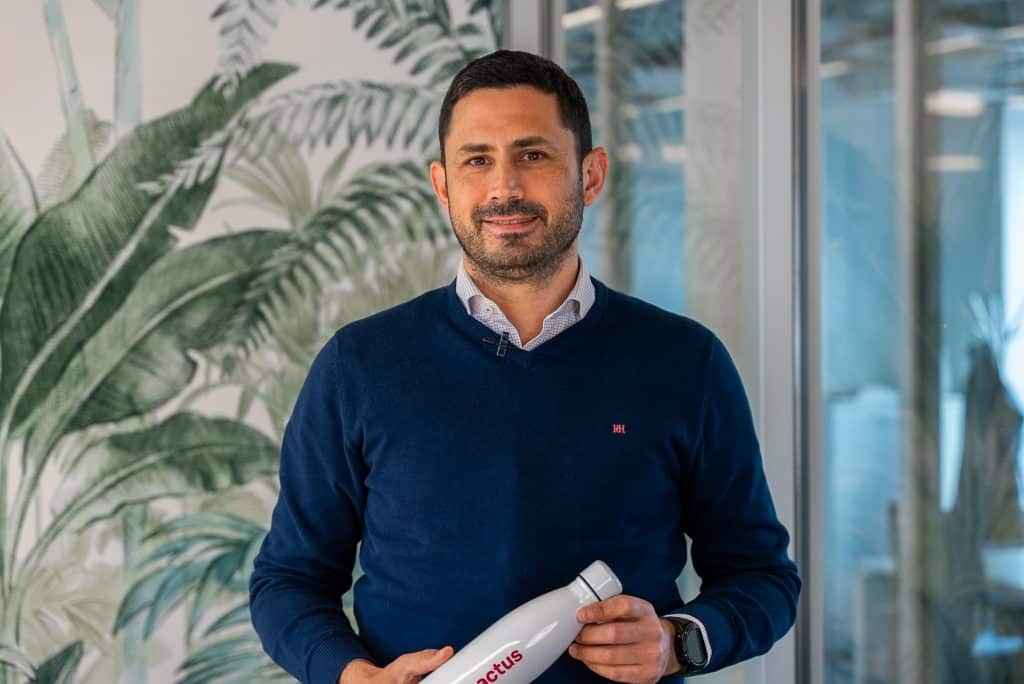
We live in a time of high-speed technological disruption. What is your view on that?
“Human history is marked by significant disruptive moments – from the invention of the printing press to the industrial revolution. Each of these events has drastically changed our lives, work, and thinking. Today, we find ourselves in another such period, driven by artificial intelligence, solar cell technology, and genetic modification. Space exploration is in full swing, with the development of large LEO constellations like Starlink and Amazon Kuiper. Quantum computing is the next major breakthrough that is already receiving a lot of attention.
The launch of ChatGPT by OpenAI in November 2022 was a significant moment. It unleashed a race in AI development that we are still witnessing. This constant evolution opens doors for innovations that we couldn’t have imagined ten years ago.
In my role, I try to identify transformative trends early, whether it’s AI or space technology. At Cactus, however, we don’t follow every trend blindly. We look at each new technology from a strategic, well-thought-out perspective that aligns with our company’s long-term goals and the value we can generate for our customers.”
You mentioned ChatGPT as a disruption within the AI race. How do you view the steps that other companies in the sector, such as Meta or Google, are taking?
“ChatGPT was groundbreaking, but it is not the only AI model that stands out. For example, Meta’s LLaMA 2 takes a different approach by being open-source. This gives developers worldwide access and fosters innovation. This is important because it democratizes the development of AI.
Google, on the other hand, is focusing on a closed model with Gemini, which promises great capabilities, especially in reasoning and multitasking. It is interesting to see how both companies are taking different paths: one focuses on open access, while the other develops refined, closed systems. Both approaches contribute to the competitive landscape of AI development.
I expect that big tech companies, driven by their substantial revenues, will dominate a large part of the market. However, there is still room for smaller players who develop smart, niche solutions or use the platforms offered by the larger companies. For Belgian companies, this means they should focus on leveraging local expertise, flexibility, and addressing specific market needs. By positioning themselves as specialized partners for larger international players, they can offer unique value that contributes to a balanced and innovative ecosystem. Think of the innovations in the port of Antwerp, our general strong expertise in logistics, or Belgium’s strong position in ESA.”
Europe often lags in technology. What is happening here?
Although the US and China dominate the AI debate, Europe has unique opportunities to carve out its own place in the global technological landscape. France, for example, is emerging as a key player. Companies like Hugging Face and Mistral show that there is a lot of potential for AI innovation in Europe. Hugging Face, founded by French entrepreneurs, is known for its open-source platform for AI developers. Mistral, led by former employees of Meta and Google DeepMind, focuses on efficient and transparent AI models. Smaller companies like Giskard, which work on AI testing and monitoring, are also gaining more attention.
I often collaborate with the European Commission and see that we need visionary leaders to advance AI, quantum computing, and space technology. We need both bold visions and meticulous execution to make a significant European contribution to global technology. As our motto at Cactus goes: there is no time to lose.
What can you say about quantum computing?
Quantum computing is one of the most promising technologies at the moment. The computing, sensing, and communication applications are fascinating, although we are still in an early phase. Companies like IBM are working hard on the hardware side, while the software side is already in full development.
Currently, software developers are focusing on the stability of qubits and correcting so-called quantization errors. But there is still a lot of work to be done. Additionally, we see that companies like Google and Microsoft are also investing heavily in quantum research, indicating that the race for practical quantum applications is in full swing.
These developments will also have implications for Belgian companies, which need to prepare for the impact of quantum technology by investing in knowledge-building and strategic collaborations to remain competitive.
In Belgium, we have the Quantum Circle, an initiative that brings together various stakeholders and promotes the groundbreaking potential of quantum technology. In my role, I see myself as an advocate for the adoption of quantum computing and as a guide for its responsible implementation. It’s about balancing vision and precision.
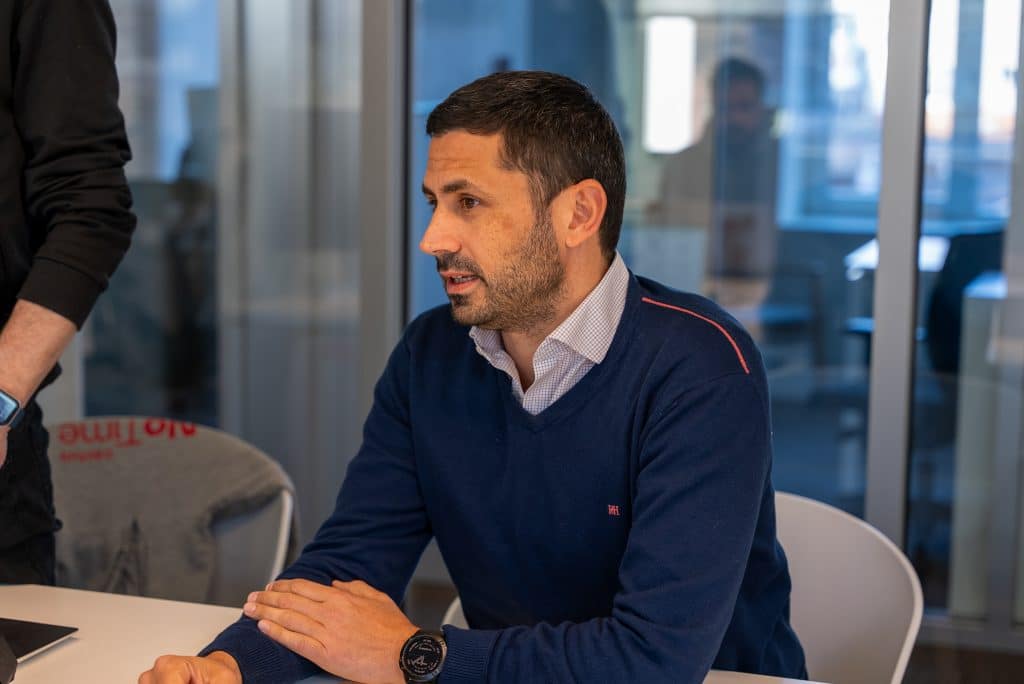
Given all this disruption in AI, quantum computing, and other areas, how do you see the future of technological innovation?
The technology landscape is changing incredibly fast, and not every investment will be successful. Some of the billions being invested now will end up in projects that ultimately fail, but a few will grow into the next unicorns and transform entire industries. The dynamic between large companies and startups constantly pushing the boundaries will continue to exist.
Additionally, we must also consider ‘black swan’ events – unpredictable events with significant impact, such as geopolitical tensions, economic crises, or environmental disasters. In the tech world, concerns about data privacy or cyberattacks could cause disruptions, for example. This uncertainty highlights the importance of not only being innovative but also being prepared for unexpected challenges.
What does this technological innovation and the speed of disruption mean for Belgian companies? What impact does this have on them and how can they respond?
I encourage companies to think both innovatively and critically, so we are prepared for the unknown. A dual approach – being visionary but keeping an eye for detail – ensures that we can continue to move forward, even in times of uncertainty. It is essential for Belgian and European companies to proactively anticipate these technological developments.
This means not only investing in new technologies but also developing the right skills and strategic partnerships to remain competitive and fully exploit the opportunities of disruptive innovations. Additionally, it is important to foster a culture of continuous learning and experimentation within the company.
Belgian companies can benefit from closer collaboration with universities and research institutions, setting up innovation hubs, and encouraging internal entrepreneurship. By remaining flexible and quickly responding to changes, they can better cope with the challenges posed by technological disruptions. At Cactus, we also focus on increasing the efficiency of our core activity – coding – through large language models. In this way, we help address the shortage of programmers in a rapidly changing market.
Read the full article in Dutch on the Bloovi website




